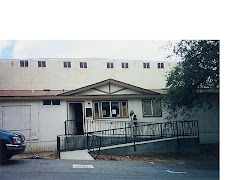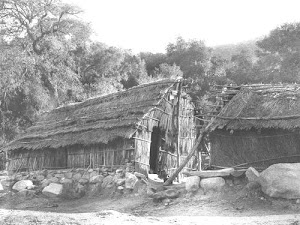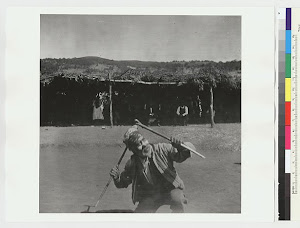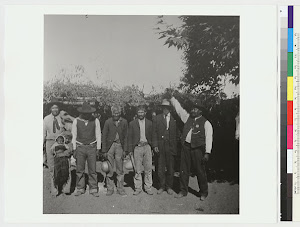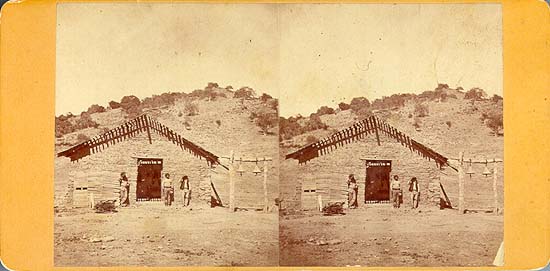Howka everyone... we are getting closer to having our library open. The library is currently getting finished thanks to the help of Brianna Osuna and Lucas. Lucas has been clearing out all the old head start stuff so we can make way for all our new books and children's reading hour furniture. We will have cute bean bag chairs that look like ladybugs and other insects. We will also have a puppet show stand with cute puppets for our children to present stories to each other. Brianna will begin a reading hour for all our preschool and school age children. Now we just need more parents and tribal members both on and off the reservation to donate some time for our children. Donation of time can be in volunteer hours, reading to children and even reading to an elder that may have vision issues. The library will also start preserving some of our tribal history , tribal stories, pictures of how our library grows, library events, etc. with the new digital camera that is made for our little ones tiny hands and big imaginations. So keep an eye out for the date and time of grand opening as we will have things to give away for everyone that comes.
Wednesday, July 30, 2008
Friday, July 25, 2008
Your Source for Free Online Practice Tests
Howka tribal members... some of you may either be preparing for a test for your job or for school and I have found a great site that lets you test yourself . The site provides the answers so you can see how well you can do on a certain test. www.testpreview.com The site could help our tribal youth as well. GED practice tests are on here as well.
The tests on the website include:ACT Test Practice
Accuplacer Test Practice
ARDMS Exam Practice
ASVAB Test Practice
ASWB Exam Practice
CAHSEE Test Practice
CBEST Test Practice
CCRN Exam Practice
CDL Test Practice
CEN Exam Practice
CFA Exam Practice
CFP Exam Practice
CFRN Exam Practice
CGFNS Exam Practice
CLEP Test Practice
CNOR Exam Practice
COMPASS Test Practice
Contractor Exam Practice
CPA Exam Practice
CSCS Test Practice
CSET Test Practice
DANB Test Practice
DAT Test Practice
Dietitian Exam Practice
EPPP Exam Practice
FCAT Test Practice
FPGEE Exam Practice
FSOT Exam Practice
GED Test Practice
GMAT Test Practice
GRE Test Practice
HOBET Test Practice
Home Inspector Exam Practice
HSPT Test Practice
ISEE Test Practice
Life and Health Exam Practice
LSAT Test Practice
MAT Test Practice
MCAT Test Practice
NAPLEX Test Practice
NBRC Test Practice
NCBTMB Test Practice
NCE Exam Practice
NCIDQ Test Practice
NCLEX Test Practice
NPTE Exam Practice
NREMT Test Practice
Nursing Test Practice
NYSTCE Test Practice
OAT Test Practice
PANCE Exam Practice
ParaPro Test Practice
PCAT Test Practice
PHR & SPHR Exam Practice
PMP Exam Practice
Praxis Test Practice
Property Casualty Exam
PSAT Test Practice
PTCB Exam Practice
SAT Test Practice
SERIES Exam Practice
SERIES 7 Exam Practice
SSAT Test Practice
TEAS® Test Practice
TExES Test Practice
TOEFL Test Practice
USMLE Exam Practice
Wonderlic Test Practice
Test Preparation
Other Exams
Test Vocabulary
Prefixes and Suffixes
Test Timing
Score Submission
Achievement or Potential
Test Anxiety
Test Difficulty
Other Resources
Graduate School
College Directory
Distance Learning
Student Loan Tips
Student Loan Providers
Paying for College
Nursing Certifications
Site Map
Posted by
Karen Vigneault Librarian
at
9:49 AM
0
comments
![]()
Tuesday, July 22, 2008
INDIGENOUS ALLIANCE WITHOUT BORDERS
Yaqui ceremonial leader Jose Matus describes the crisis at the US/Mexico border, where the border wall and Homeland Security's increased restrictions violate lifeways present since time immemorial
By Brenda Norrell
SOUTH FORK, Nevada -- Jose Matus, Yaqui ceremonial leader and director of the Indigenous Alliance Without Borders/Alianza Indigena Sin Fronteras, said Homeland Security's increased border restrictions are interfering with the Yaquis ability to preserve their culture and ceremonies.Matus, speaking at the Indigenous Environmental Network’s Protecting Mother Earth Conference on Western Shoshone lands, said Yaqui in the United States are faced with the loss of their language, Hiaki. The declining number of Yaquis speaking the language is affecting the Yaquis ability to maintain their ceremonies.Matus said one of the ways Yaqui maintain their ceremonies is by bringing in Yaqui from Mexico who are well-versed in the Yaqui language, knowledge and ceremonies.Following the request of Yaqui elders in 1973, Matus began his 35-year effort to maintain the Yaqui ceremonies in the US by bringing in Yaqui ceremonial leaders from Sonora, Mexico, for temporary stays for ceremonies.However, in recent years, the increased restrictions by Homeland Security and racist attitudes and migrant xenophobia in the US has resulted in increased legal obstacles.“Now, Homeland Security is getting very, very strict,” Matus told the gathering of more than 700 people from the Americas on Western Shoshone land at South Fork, Nevada, July 17 -- 20, 2008.Matus said that earlier he was able to work with border officials to get ceremonial leaders across the Southwest borders. “As time went goes by, legislation changes and attitudes change, including the anti-immigrant hysteria.”Matus said the fight against terrorism created more obstacles. “That has created more obstacles. That has affected all the people who have relatives in Mexico.”The Indigenous Alliance Without Borders is now working Akimel O’otham in Gila River, Arizona, some O’odham in Mexico, Raramuri/Tarahumara in Mexico, the Yaqui Nation in Arizona and other Indigenous Peoples whose rights are being violated by border rules and border wall construction.The Indigenous Alliance Without Borders was created in 1997 in response to harassment of Indigenous Peoples crossing the border. Border agents were violating and destroying ceremonial items and frightening and intimidating women, children and elders.“We have tried to set up permanent border crossing rights for the Yaqui, Gila River Pima and Raramuri.” Matus said the alliance recently began working with Tewa from El Paso, Texas, where the border wall construction is now destroying cultural rights and sacred places.“The wall itself is a lethal weapon that the US government is using to kill thousands of undocumented crossers.”Matus said the border wall is destroying the environment, sacred sites and the connection between relatives in Mexico and the United States.“Now they are destroying and dividing the Tewa and Kumeyaay ceremonial grounds,” he said of the Tewa in the region of El Paso, Texas, and Kumeyaay, in California and Baja, Mexico.Matus said the alliance is examining possible legislation to ensure border crossing rights. However, he said Indian Nation governments need to support border crossing rights in order for legislation to pass in the United States. At the same time, the United States government is intimidating tribes to prevent them from exercising their rights at the border.“We are all terrorists as far as they are concerned. They put us through all these obstacles as we try to cross that border," Matus said.While Indigenous Peoples are attempting to maintain their culture and ceremonies, they are unjustly targeted.“For national security reasons, we can not bring our elders across the border for ceremonies,” Matus said.
Listen to the IEN Conference on Western Shoshone lands
http://www.earthcycles.net/
Photos at: http://www.bsnorrell.blogspot.com/
Posted by
Karen Vigneault Librarian
at
11:19 AM
0
comments
![]()
LOCAL HISTORY AND GENEAOLOGY PORTALS TO THE WORLD
REGIONAL GENEALOGY & LOCAL HISTORY RESEARCH:LOCAL HISTORY AND GENEALOGY PORTALS TO THE WORLDRegional genealogy and local history research includes: areas, countries, directories, organizations,local ancestry and local history studies. Total ethnic group populations are combined with regions of significant ethnic population, for an evaluation of global migration patterns over generations of time.
http://www.academic-genealogy.com/regionalgenealogy.htm#amernorth
Posted by
Karen Vigneault Librarian
at
9:04 AM
0
comments
![]()
Wednesday, July 16, 2008
Watch TV shows and movies online
Howka tribal members, for those of you that may not have cable, or are just want to watch a free movie or old TV episodes, you can go to www.hulu.com and watch them for free.
Posted by
Karen Vigneault Librarian
at
1:49 PM
0
comments
![]()
Monday, July 14, 2008
California Indian Cowboys
Many of us knew about Uncle Eddie and our local cowboys , but we don't read much about the history of tribal cowboys.
http://www.americanindian.ucr.edu/references/indian_ranching/
The link says "In reality, the history of the American West and ranching is far more diverse. The American West has been influenced by far more than the Anglo male cowboy; ranching culture and history is a product of men and women of many ethnicities. As ranching economy and culture spread across the West, it encountered various American Indian tribes that already lived on the land. Many Indians adopted ranching, incorporating sheep, cattle, and horses into their economies and cultures. In so doing, they created their own history and contributed to the history of the American West and specifically to ranching. American Indians were involved in ranching in a number of ways: on missions, as cowboys, and as ranchers. Furthermore, they contributed to the history and culture of rodeo. American Indians were not antithetical to cowboys, many were cowboys. This website explores the history of California Indian ranching and rodeo and explores the local history of ranching among the Cahuilla and Luiseño through photographs, historical accounts, and stories."
Posted by
Karen Vigneault Librarian
at
9:25 AM
1 comments
![]()
Thursday, July 10, 2008
ARE U STILL USING AN ANTENNA?
http://dtvtransition.org/
On February 17, 2009 Television Will EvolveIn
222 days, 15 hours, 52 minutes, 46 secondsthe era of analog broadcast television in the United States will end as the nation's full power* television stations complete their transition to an all-digital system. While this change will mark the end of the traditional analog method of broadcasting over-the-air television, it won’t signal the end of free broadcast television, and your favorite broadcast programs and local television stations will still be available.If you currently receive analog television over the air or via an antenna, you’ll need to take action to continue watching your favorite stations. TVs accessing "pay" television service such as cable or satellite aren't likely to be affected by the switch.
What, why & how?
Information and resources on this site will help ensure that you’re prepared for the digital TV transition and that you’ll continue to receive free broadcast television in the digital age.Learn How Now »*Many low-power TV and TV translator stations may remain in analog after February 17, 2009. For easiest navigation between these channels and full power digital channels using analog TV sets consumers may want to use converter boxes with “analog pass-through” capability. Click here to learn more.
For the digital box coupon
http://dtvtransition.org/index.php?option=com_content&task=view&id=31&Itemid=44
Learn more about the DTV Converter Box and the coupon program
A digital-to-analog converter box receives digital over-the-air signals from your antenna, converts them to analog and sends the signal to your existing analog television set. These boxes, which are expected to cost between $50 - 70 will be available for purchase in 2008. Beginning on January 1, 2008, U.S. households can request up to two coupons valued at $40 each. Each coupon can go toward the purchase of a single set-top converter box that will allow you to continue watching FREE over-the-air television on an analog set. Click here to learn how to set-up your converter box.For more information about the converter box program visit the NTIA’s official site, and click here to see a list of coupon-eligible converter boxes.
Posted by
Karen Vigneault Librarian
at
9:09 AM
0
comments
![]()
Wednesday, July 9, 2008
Grand Opening & volunteer help needed
Howka tribal members, I am almost finished with getting our future library organized. We are planning on an August grand opening. We will need volunteers to help the library stay open . The tribe received a grant , but the grant only covered expenses fo buying new books and I saved half of the grant so as to pay a tribal member to work in the library. In order for us to keep the library open when someone isn't working in there is to have tribal members volunteer to sit in the library so as tribal members can either just sit and read in the library, or so they can check out books. The books can only be checked out by tribal members. The library will have monthly programs promoting literacy, monthly projects working with the tribe's youth program as well as projects to help preserve our tribal culture & history. If a tribal member is interested in becoming a librarian I would love to talk to them as there are only about 3 of us california Indians that have actually gotten their degrees in library studies and I think it would be fantastic if more than one came from our reservation.I am also hoping to promote writing amongst our tribal peoples as there are few books written by us that are Ipai or Tipai (Kumeyaay). If you have any comments please click the comment section below the posting. if anyone would like to reach me personally my email is kumeyaayindian@hotmail.com .
Karen Vigneault (Santa Ysabel tribal member)
MLIS, BS
Posted by
Karen Vigneault Librarian
at
10:43 AM
0
comments
![]()


